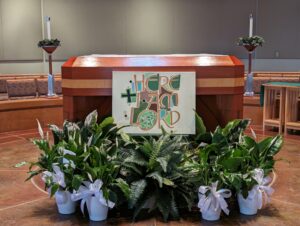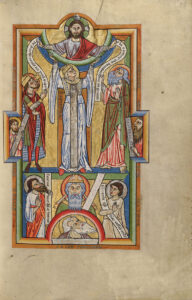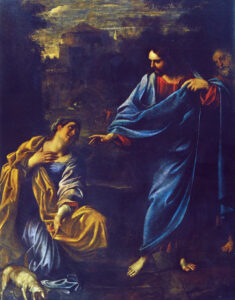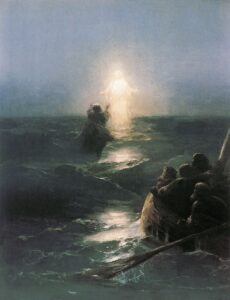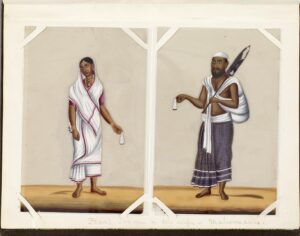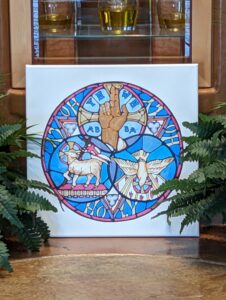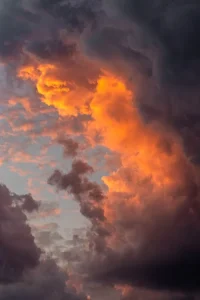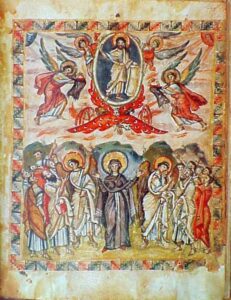Put to the Test by God
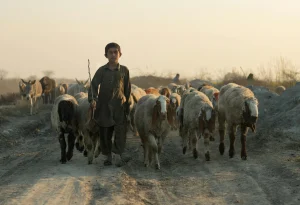 The twelve-year-old boy rushed breathlessly into my classroom and came straight up to me with a question that had been on his mind for days. “He didn’t kill him, did he?” he demanded to know. He was the older son in a troubled family and had only consciously heard the first part of the story of God’s test of Abraham’s faith during Mass on the Sunday before our class. I’m sure the entire reading had been proclaimed, but he had not heard it. He had waited until we met on Thursday afternoon, worrying about this terrible command God had given to Abraham – to sacrifice his only son. How could this be? What kind of God would do such a thing? How could a good God require the killing of a child? He had been so shocked by the mere thought of God asking a man to kill his only son that he stopped hearing anything more right at that point. He had not heard the rest of the story at all and was deeply relieved when I assured him that in fact, God had not allowed any harm to come to Abraham’s child.
The twelve-year-old boy rushed breathlessly into my classroom and came straight up to me with a question that had been on his mind for days. “He didn’t kill him, did he?” he demanded to know. He was the older son in a troubled family and had only consciously heard the first part of the story of God’s test of Abraham’s faith during Mass on the Sunday before our class. I’m sure the entire reading had been proclaimed, but he had not heard it. He had waited until we met on Thursday afternoon, worrying about this terrible command God had given to Abraham – to sacrifice his only son. How could this be? What kind of God would do such a thing? How could a good God require the killing of a child? He had been so shocked by the mere thought of God asking a man to kill his only son that he stopped hearing anything more right at that point. He had not heard the rest of the story at all and was deeply relieved when I assured him that in fact, God had not allowed any harm to come to Abraham’s child.
This story of the testing of Abraham (Gn 22:1-2, 9a, 10-13,15-18) and many others like it are deeply troubling to us. Why would anyone ever think that our God could or would demand the blood sacrifice of children? Why would Abraham have believed that about God?
One of the great challenges we humans face is to be able to conceive of a reality dramatically different from the one in which we live. How can we imagine a person who never loses his or her temper? How can it be possible always to be forgiven? Wouldn’t the fear of punishment be needed to force people to follow the rules? And how can anyone establish that fear without actually punishing someone severely and publicly for misbehavior?
When we listen to the readings from both the Hebrew and Christian Scriptures, it’s important that we realize we are looking back in time to a very different day and age. Additionally, we are looking from the perspective of a different culture, with different understandings of human behavior and the nature of God.
Abraham lived in a time in which all the people among whom he lived had their own local god or gods whom they believed guided and protected them. These gods were very much like the people who worshiped them: territorial, jealous, protective of those they considered to be their own, impatient, always demanding proof of the good will of others.
The gods of the peoples among whom Abraham and his family lived sometimes required the sacrifice of firstborn sons as proof of loyalty and obedience. They required families to prove their faith by sacrificing a child, typically a son because sons were seen as more valuable. It was rare for families not to have children, so this rule was not hard to enforce.
Abraham would have seen this practice and assumed that the God he first met back home in Mesopotamia would want the same kind of sacrifice from him. Blessedly for Abraham and all of us who follow in worshiping his God, this is not what God requires. Sometimes, we are asked to make tremendous sacrifices. Other times, what we are asked to sacrifice is not life-shaking or life-changing. Nevertheless, when we are asked to make a sacrifice, it is not something easy for us to do. If it were, it wouldn’t really be a sacrifice now, would it?
When Jesus was born, he was truly human and truly God. One hundred percent on both fronts! Not a demi-god – half human and half divine. Fully human. Fully divine. As a human, Jesus did not know everything. He learned like any child what was expected of him as a man. He lived like everyone else, not at all remarkable. Yet when he heard God’s voice at his baptism in the Jordan River, he knew all had changed in that moment. He began to understand how dramatically things had changed. The kingdom had come. His mission was to proclaim it to all who would listen.
Some people welcomed the news. Some were frightened by it. Some thought it too good to be true. Some worried that they would lose their positions of influence. Some probably worried that the Romans who ruled their country would again kill thousands of people for rebelling against the Empire. The notion that a prophet, anointed by God to preach the coming of God’s kingdom, would not be a threat to Roman power was unheard of. Of course they would see it as a threat! How could the threat be minimized?
Jesus needed to testify in Jerusalem to what had happened to him, to the leaders of his community, the priests and teachers at the temple. The kingdom of God was here now. It was essential for them to hear this good news. So he began his journey, teaching and healing as he went along. A group of people accompanied him. Some were with him for a long while and became close companions. Others came for a while and left when his words became frightening or impossible for them to believe.
One day, when he had become very aware of the danger of execution he would be facing in Jerusalem, he went up to a mountain top with three of his closest friends to pray. Mountain tops have often been places where God and humans have met. This day was the same. Jesus and his friends were visited by two historical figures: Moses who received the Law from God and Elijah the prophet who was carried away by a heavenly chariot at the end of his life. Jesus himself began to shine with an unearthly light, his clothes whiter than any bleach could make them. The disciples saw Jesus talking with Moses and Elijah. Then they saw a cloud that came and cast a shadow over the mountain. God often appeared in a cloud and this was no exception. The voice that came from the cloud told them Jesus was his beloved son. They were to listen to him. (Mk 9:2-10)
Interestingly, God spoke similar words to Abraham about his son Isaac, referring to him as “your beloved son.” Abraham’s willingness to give all to God was rewarded with God’s returning of the son to him. An animal was offered in sacrifice instead of the child. (My young student was much relieved to hear that good news!)
When Jesus himself faced the decision whether to complete his mission and bring the good news to the authorities, risking his own death in the process, or to drop the whole thing and go back to being a village carpenter in Galilee, he chose to move forward and take the chance. It was not an easy choice and it cost him his life. But God his Father did not allow it all to end with that suffering and death. God brought Jesus through death to a return to life – a life that will never end, the life of the Trinity.
St. Paul and other early Christians explained that with the resurrection, God forgave all of us for the times we do not obey the divine will. Christ intercedes for us, because he is one of us and has lived a fully human life. He knows what it is to be human. (Rom 8:31b-34)
In a very real way, our God who created humans, was now not so totally envisioned in the human terms that cast him as if he were a jealous, controlling, person. Instead, he came to be known as one who understood and forgave all, because he had come to be one of us through the life of his son the Word of God, Jesus. God knows what it is to be human, so God can and will forgive all who ask for forgiveness. We are put to the test, but so is God. God never fails the test of love. God was even willing to go through with the sacrifice of his Son Jesus, so that all of us would know how much we are loved and could trust deeply in that love.
As we continue our journey through Lent this year, may we remember that God is truly with us on the journey. We are not alone. Our sacrifices, big and small, are noted. Our reaching out in love to those we meet along the way is an essential part of God’s plan for all of us. And God sees each of us as a beloved child.
Readings for the Second Sunday of Lent – Cycle B
Read More



